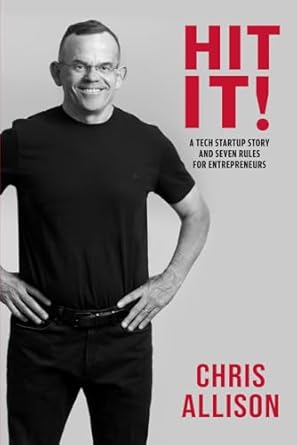Build It, And They Just Might Come
by Chris Allison
 As we enter 2025, Pittsburgh, once the proud heart of America's steel industry, now stands at a crossroads. As the anonymous voice in the cornfield of the iconic Field of Dreams, where building a baseball field brings people to it, Pittsburgh must build a thriving economic ecosystem to attract businesses, entrepreneurs, and innovators.
As we enter 2025, Pittsburgh, once the proud heart of America's steel industry, now stands at a crossroads. As the anonymous voice in the cornfield of the iconic Field of Dreams, where building a baseball field brings people to it, Pittsburgh must build a thriving economic ecosystem to attract businesses, entrepreneurs, and innovators.
With deindustrialization, Pittsburgh was forced to confront the reality of lost industries and jobs. Since the 1960s, Pittsburgh has seen a decline in population and a shift in its economy. The city’s population peaked at about 680,000 in 1950, primarily due to the steel industry’s dominance. However, according to the U.S. Census Bureau, the steel industry's collapse in the 1970s and 1980s caused a significant outflow of people, and by 2020, the population had decreased to approximately 300,000.
Some believe that social amenities and marketing will keep people here. Rebuilding this economic base requires more than replacing old industries with new ones and building hotels and restaurants; it requires focusing on innovation that can generate sustainable growth and change short-term mindsets.
Startups and small businesses drive modern economies, and Pittsburgh is well-positioned to nurture technologies like immunotherapy, robotics, artificial intelligence, and advanced manufacturing. By translating cutting-edge research into marketable products and services, Pittsburgh can create a cycle of innovation and economic output.
While world-class robotics and AI programs at Carnegie Mellon University is a significant asset in fostering this innovation, as is the medical research conducted by UPMC and its Hillman Cancer Center, we need daring entrepreneurs to build business and keep them running for the long term, not flipping them for a quick buck.
The success of Fairchild Semiconductor in the 1960s offers a model for Pittsburgh’s future. Fairchild’s founders—engineers who left their previous company to pursue their vision—helped create Silicon Valley. Their innovations in semiconductors sparked an entrepreneurial culture that led to a thriving ecosystem of tech companies.
Venture capitalists (VCs) and angel investors focusing on investing in tech companies to sell within five-to-seven years rather than foster long-term operations creates a poor incentive system. This model discourages creating enduring companies contributing to economic stability and local growth.
Fairchild Semiconductor spawned at least 30 to 40 companies over time through its alums leaving to start their ventures or spin-offs. Many of these companies became pivotal in shaping the broader tech landscape of Silicon Valley. Some prominent companies that originated from Fairchild include Intel, National Semiconductor, Advanced Micro Devices (AMD), Varian Associates, and Hewlett-Packard (HP). The companies were dubbed “Fairchildren.” Pittsburgh can take inspiration from this by fostering a similar culture of collaboration, risk-taking, and entrepreneurship.
The city has already seen glimpses of this potential, particularly with the success of Fore Systems in the 1990s. A company born from Carnegie Mellon research, Fore Systems proliferated, positioning Pittsburgh as an emerging tech hub. Fore Systems’ success inspired other ventures and demonstrated Pittsburgh’s potential to become a technology leader.
Ron Bianchini, a former employee of Fore Systems, and arguably the finest local tech entrepreneur in a generation, is an example of how experience in pioneering companies can drive innovation. He co-founded Spinnaker Networks, which NetApp acquired, and later Avere Systems, which Microsoft bought in 2018. One can say the same for the FORE founders, who started G4 Partners, and fellow FORE alums Dave Nelson and Andy Fraley, the founders of CoManage.
While not a Fore alum, innovator Glen Meakem built a $100 million-in-revenue reverse-auction dot.com Freemarkets as well as his current venture Forever. Sean McDonald and Rich Lunak built an innovative company that created a prescription delivery system for hospitals called Automated Healthcare. We need to celebrate these tech visionaries and seek their counsel. We also need to change how we look at wealth creation.
We must also abandon the “pump and dump” mentality and build companies that can function independently for the long term like great companies, such as ATI, Giant Eagle, 84 Lumber, Industrial Scientific, and Eat N Park.
Venture capitalists (VCs) and angel investors focusing on investing in tech companies to sell within five-to-seven years rather than foster long-term operations creates a poor incentive system. This model discourages creating enduring companies contributing to economic stability and local growth.
Pittsburgh has the opportunity to redefine its role in the 21st century by focusing on innovation, leveraging its economic competency, and committing to sustainable growth. As in Field of Dreams, Pittsburgh’s economic transformation starts with a bold vision: build it, and they will come.
Chris Allison, Co-Founder and CEO of Tollgrade Communications, Inc., teaches business at Allegheny College in Meadville, PA and is the author of the new book, Hit It!: A Tech Startup Story and Seven Rules For Entrepreneurs.